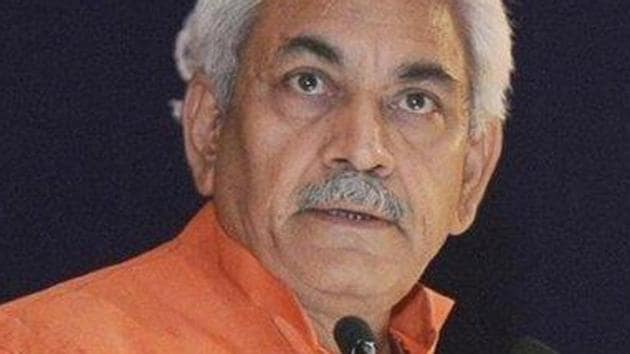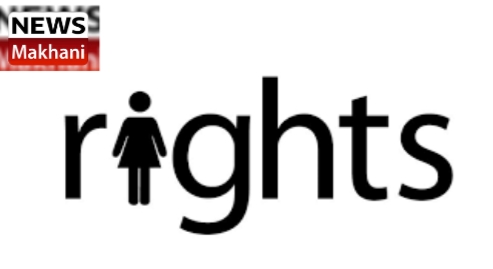Financial system in J&K one of the most transparent systems anywhere: LG
Promoting good governance in financial management, one of the core objectives of the Government, says the Lt Governor
e-Book provides insight into reforms, steps implemented to institutionalize prudence in financial management in J&K
• Unprecedented levels of transparency achieved through web portal – EMPOWERMENT
• Goods and Service Tax (GST) revenue collections in the FY 2020-21 has shown positive growth
• Timely payments from Treasuries ensured
JAMMU, MAY 19, 2021: Lieutenant Governor, Manoj Sinha today released “Annual Report- Promoting Good Governance” compiled by the Finance Department showcasing major initiatives undertaken by the said Department during 2020-21 to bring transparency and accountability in the execution of the public works.
Sh. Arun Kumar Mehta, Financial Commissioner, Finance Department; and Sh. Nitishwar Kumar, Principal Secretary to the Lt Governor were present on the occasion.
The report in the form of e-Book provides insight into reforms, steps implemented by the Finance Department to institutionalize prudence in financial management in J&K which has truly transformed the Union Territory.
The document captures the essence of reforms such as online processing of bills through PaySys, streamlining of GST, e-stamping, e-GRAS, e-auction of Liquor licences for retail outlets, digital payments, implementation of GeM, path-breaking reforms in J&K Bank, publication of important manuals relating to Budget and Audit, Back to Village and My Town My Pride initiatives and 100% physical verification which is most vital initiative to ensure implementation of projects without cost and time over-runs.
“Promoting good governance in the financial management has been one of the core objectives of the Government. Financial system in the Union Territory of J&K is one of the most transparent systems anywhere and is amongst the key changes that have taken roots in the Union Territory”, observed the Lt Governor.
Highlighting major reforms taken by the Government to bring transparency in the financial system and making it more robust, the Lt Governor said that implementation of transformative reforms such as BEAMS (Budget Estimation and Allocation Monitoring System), which enables online budgetary process and timely release of funds against approved works, online submission of bills through J&K PaySys, Mandatory Administrative Approvals, Technical Sanctions and e-Tendering, digital payments, GFR, GeM etc have brought financial systems in J&K at par with any other progressive system in the country.
Unprecedented levels of transparency have been achieved through EMPOWERMENT (Enabling Monitoring and Public Overview of Works Being Executed & Resources for Meaningful Transparency) which is a web portal hosting all the works being executed in the UT of J&K and allows public oversight of all works under execution, observed the Lt Governor.
Publication of pictorial e-compendiums related to projects completed under Back to Village, District Capex, UT Capex and JKIDFC is a symbol of desire of the Government to engage with the Citizens. This is the first time in the Union Territory of J&K that people are able to oversee works being executed in their areas and progress monitored on real-time basis. During 2020-21, more than 18,000 works were available on the EMPOWERMENT portal for the first time in J&K for public viewing to bring real grass root empowerment, he added.
“Our Government believes in the mantra of four P’s – Peace, Progress, Prosperity, and People-first, for the holistic development and to make Jammu and Kashmir AatmaNirbhar ”, said the Lt Governor.
It was informed that the Goods and Service Tax (GST) revenue collections in the Financial Year 2020-21 has shown positive growth despite constraints witnessed during the initial months of the fiscal year due to Covid-led restrictions. GST collections in the Union Territory had plummeted by more than 70 percent Year-on-Year (YoY) during the lockdown months of April, May, and June last year. Gross GST revenue collections including settlement for the Financial Year 2020-21 in J&K stood at Rs 4890.35 crores against a total gross GST collection of Rs 4750.60 crores in the Financial Year 2019-20, thus registering a positive growth of 2.94 percent.
Despite Covid related periods of restrictions, the Excise Revenue collection in 2020-21 grew at 5.36%. Total excise revenue generated during 2020-21 stood at Rs 1353.43 crores.
One of the major transformations witnessed was the timely payments from Treasuries. This was one of the hallmarks of treasury management in 2020-21. The unhealthy practice of clearing of contractor bills, GPF, Gratuity etc after months were completely stopped and payments were made within a day invariably. Delay reports at the level of DDOs and Treasuries are being institutionalized to avoid delays in due payments. Revised Audit Manual, Budget Manual and Treasury Code have been notified by the Government to streamline expenditure and payment systems.
Government of J&K has made electronic mode of payments mandatory without involving any cash transactions from 2020-21. Promotion of digital payment ensured transparency, timeliness, and accountability in transaction of Government business and complete streamlining of payment systems across the Union Territory. The payment in DBT mode has also been made mandatory which has led to a great impact on timely payments to more than 80 lakh beneficiaries. With the introduction of the just-in-time payment system through DBT, nearly 2 lakh duplicate cases of beneficiaries under PDS have been weeded out and 4.5 lakh silent beneficiaries have been deactivated.
During 2020-21, a holistic package of Rs. 1353 crores for Inclusive Growth was announced as Economic Package. About 3.44 lakhs borrowers involving Rs 750 crore benefitted by interest subvention of 5% under this Business Revival Package. 5% Interest subvention was also disbursed for 4,542 borrowers affected by 2014 floods involving an amount of Rs 37.32 crores. Rs 102.31 crores for 20,228 borrowers were released under Business Interest Relief Scheme. 766 beneficiaries benefitted under WCDL (working capital Demand Loan) for business establishments involving Rs 96.68 crores. 61,477 beneficiaries benefitted under GECl-1 involving Rs 1862.19 crores. About 289 beneficiaries benefitted under Business Support Loan General involving Rs 74.37 crores. More than 14,000 beneficiaries were provided Rs 1000 per month for 9 months during 2020-21.
To empower youth, a livelihood generation scheme “Mumkin” was launched. This scheme provides sustainable livelihood to the youth of Jammu & Kashmir. The idea behind this initiative is to provide small commercial vehicles to youth without the need for any initial investment at reasonable subsidies from both the manufacturer and the government, enabling them to earn.
Under Back to Village programme, more than 4000 officers spending two days including night halt in panchayats was an attempt to bring governance at people’s doorsteps. During B2V1 & B2V2, 4000 projects have been completed notwithstanding the constraints like Covid-19 pandemic. Rs 10 lakhs were provided to each panchayat under the B2V3 programme for providing basic and other amenities in villages. Sports kits costing Rs. 20,000 each were distributed in each Gram Panchayat under Back to Village-3 programme and around 20,000 youths were identified for bank finance to start their own venture. Similarly, the Finance department provided financial assistance of Rs 57 crores for “My Town My Pride” Programme to provide governance at the doorsteps in urban areas on the pattern of the “Back to Village” Programme.
J&K Bank has seen complete transformation in its outlook and functioning. The bank has moved into profit zone during the first two quarters of last financial year despite pandemic, and has been successfully able to overcome the past legacy. It is a matter of satisfaction that both deposits and advances of the bank have grown up by 12.57% and 15.41% respectively on Year-on-Year basis in the UT of J&K. First time in history, J&K Bank implemented RTI and CVC guidelines and ensured complete accountability. The bank has now provided loans to over 19,538 young and unemployed youth at their doorsteps as part of Back to Village Programme with sanctioned amount of Rs. 340 crores. Recruitment of 1850 persons was completed during 2020-21.
To bring more people under financial inclusion, an amount of Rs. 6021 crores was disbursed to 7,18,258 KCC Crop account holders, Rs 514 crores to 87,615 AH&F account holders and 25.09 lakhs accounts were opened under PMJDY out of which, 3.04 lakhs accounts were opened during FY 2020-21.
Under ANBA, free rice was provided to 98,566 individual beneficiaries and pulses to 31,069 families. Under Covid-19 Regulatory Package, Term Loans & working capital disbursed to 361 borrowers amounting to Rs. 39.17 crores. Special credit facility for street vendors with an initial working capital of Rs 1000 disbursed to 11,276 cases under PM-SVANidhi Scheme.
The J&K Government has now shifted to real-time ledger posting of General Provident fund and has successfully implemented it from August 2020 onwards. This has benefitted almost 3.5 lakh GP Fund subscribers who are now able to have their subscriptions posted on real-time basis without any delay. This initiative would resolve the issue of delay in settlement of final GPF refund cases, issuance of annual accounts statements, and Transfer Entries. SMS service regarding GPF balances of the subscribers has been provided. This is a major employee-oriented initiative. Another employee related app “MeraVetan” was launched which provides information of pay level, GPF/NPS Subscription, all the allowances, Deductions, Income Tax statements, SLT statements etc. This has been fully implemented and employees are using this app to track their salary and other details, it was informed.

 English
English






